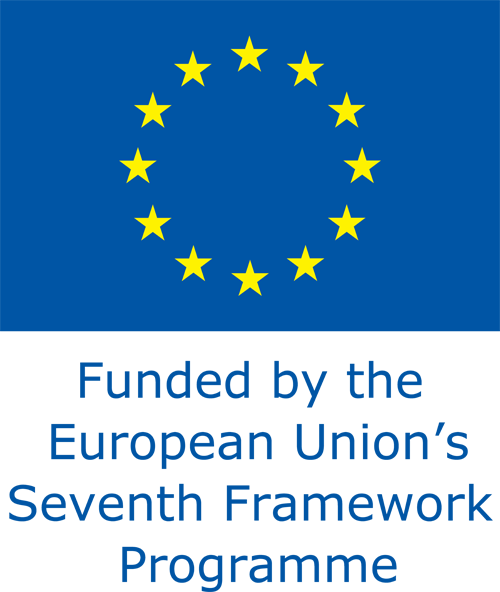|
Project network / relevant links
Group on Earth Observations (GEO)
The Group on Earth Observations is coordinating efforts to build a Global Earth Observation System of Systems, or GEOSS. GEO is a voluntary partnership of governments and international organizations. It provides a framework within which these partners can develop new projects and coordinate their strategies and investments. As of March 2009, GEO’s Members include 77 Governments and the European Commission Contact: ecretariat@geosec.org Global Earth Observation System of Systems (GEOSS)GEOSS will proactively link together existing and planned observing systems around the world and support the development of new systems where gaps currently exist. It will promote common technical standards so that data from the thousands of different instruments can be combined into coherent data sets. The ‘GEOPortal’ offers a single Internet access point for users seeking data, imagery and analytical software packages relevant to all parts of the globe. It connects users to existing data bases and portals and provides reliable, up-to-date and user friendly information – vital for the work of decision makers, planners and emergency managers. Contact: Scientific Committee in Oceanographic Research working group on Natural and Human-Induced Hypoxia and Consequences for Coastal Areas (SCOR WG 128)SCOR WG 128 is set up to synthesize the state of the science of coastal hypoxia, Identify gaps in our understanding of hypoxia, make recommendations for future research, and determine the requirements for observing and modeling coastal hypoxia. Contact: Jing Zhang <jzhang@sklec.ecnu.edu.cn>, Denis Gilbert <denis.gilbert@dfo-mpo.gc.ca> European Seas Observatory Network of Excellence (ESONET NoE)ESONET is a Network of Excellence with the main objective of integrating a community around and in 12 European sites, federating science, know-how and methods. Contact: esonet-coordinator@ifremer.fr European Multidisciplinary Seas Observation Network (EMSO PP )EMSO PP is an infrastructure project, launched in April 2008 for 4 years with the main objective of establishing the legal and governance framework for the infrastructure serving scientists and other stakeholders in Europe and outside Europe for long-term deep water observation and investigation. Contact: Paolo Favali <pfavali@ingv.it> HYPoxia mitigation for Baltic Sea Ecosystem Restoration (HYPER)HYPER is set up to synthesize knowledge on hypoxia at an ecosystem scale and establish a holistic scientific understanding of the mechanisms leading to hypoxia and associated effects on benthic fauna. Contact: Jacob Carstensen <jac@dmu.dk> European Ocean Observatory Network (EuroSITES)EuroSITES will integrate and enhance the existing European open-ocean observational capacity to encompass the ocean interior, seafloor and subseafloor and enhance the development of more sophisticated sensors to measure more complex properties of the oceans. Contact: Richard Lampitt <rsl@noc.soton.ac.uk>,Kate Larkin <kel1@noc.soton.ac.uk> Climate - Biogeochemistry Interactions in the Tropical Ocean (SFB 754)German Research Foundation founded Collaborative Research Centre on subsurface dissolved oxygen in the tropical ocean and its response to variability in ocean circulation, ventilation, nutrient availability and on magnitudes and time scales of past, present and future variations in oceanic oxygen and nutrient levels on regional and global scales Contact: Douglas Wallace <dwallace@ifm-geomar.de>, Lothar Stramma <lstramma@ifm-geomar.de> The Benguela Current CommissionThe Benguela Current Commission (BCC) is a joint initiative of Angola, Namibia and South Africa to facilitate development, management and protection of the Benguela Current Marine Ecosystem that represents one of the worlds most productive ocean areas. Causes and consequences of hypoxia in the water column and on the southwest African shelf is one of the central scientific topics considered by the BCC. Contact: Hashali HAMUKUAYA <hashali@benguelacc.org>, Kevin Stephanus <kevin@benguelacc.org> OceanObsOceanObs is a decennial meeting series aiming to promote the development of a comprehensive ocean observing system. Focus of the 2009 meeting is not only the monitoring of the physical environment of the oceans but also the dissemination and societal use of the acquired data. Land Ocean Interactions in the Coastal Zone (LOICZ)LOICZ is an international research project and expert network exploring the drivers and socio-environmental impacts of global environmental change in coastal zones. In order to support adaptation, LOICZ informs the scientific community, policymakers, managers and stakeholders on the relevance of global environmental change in the coastal zone. |
|||||||||

